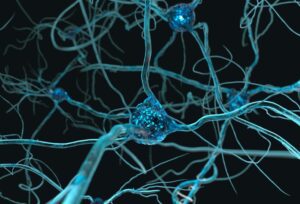
Straining your eyes? You can listen to this automated AI version of the article here:
Contents
- 1. What is Vitamin B12?
- 2. How much Vitamin B12 do you need?
- 3. What is the optimum dose?
- 4. Which foods contain Vitamin B12?
- 5. I am vegetarian – do I have enough Vitamin B12?
- 6. What are the signs of B12 deficiency?
- 7. I eat red meat; can I still be Vitamin B12 deficient?
- 8. Can you have too much B12?
1. What is Vitamin B12?
Vitamin B12, or cobalamin, is a nutrient that assists with keeping the body’s nerve and red blood cells healthy. It also plays an essential role in the process of methylation, making of DNA, and synthesis of fatty acid production in the body. Vitamin B12 is an important nutrient for cell health, growth, and development from the foetal stages, all the way through to adulthood. Like other B vitamins, it is responsible for energy production; however, it has a special role in red blood cell production, supporting them to move oxygen throughout the body.
2. How much Vitamin B12 do you need?
The recommended dietary allowance for B12 is between 0.4 – 1.8mcg for children and between 1.8mcg – 2.8mcg for adults. A higher amount is often needed for pregnant and breastfeeding women.
3. What is the optimum dose?
The above recommendations are the amount necessary for an adequate dose only. It is important to remember that when the body is under stress, it uses more nutrients. Therapeutically, naturopaths often recommend up to 1000mcg of B12 daily if there is a deficiency present. Additionally, only about 2% of supplemental B12 is absorbed in healthy people.
4. Which foods contain Vitamin B12?
Vitamin B12 is manufactured exclusively by micro-organisms (bacteria). The animals we eat absorb the B12 made by their gut bacteria and this B12 accumulates in their tissues. Therefore, the best sources are animal-based, as animals produce B12 in their cells. Organ meat, beef, lamb, poultry, and eggs are the highest sources. Dairy products, fish, and shellfish are also reliable sources.
5. I am vegetarian – do I have enough Vitamin B12?
Some claim that sea vegetables such as nori also contain Vitamin B12. Most seaweeds contain the inactive form of B12, and this cannot be utilised by the body. The purple laver seaweed and tempeh have been shown to have activated B12, but in insufficient amounts, so these are not reliable sources. Some nutritional yeasts are fortified with synthetic B12. If you follow a vegan or vegetarian diet, is a good idea to supplement your diet with B12 and regularly get your serum B12 levels checked.
6. What are the signs of B12 deficiency?
Vitamin B12 deficiency is associated with impaired nerve function. Commonly seen deficiency signs are numbness, pins and needles, burning feet, tinnitus (ringing of the ears) or impaired brain health often seen in the elderly. Shortness of breath, lethargy, altered bowel function, and a beefy, red tongue are also indications of deficiency. The body may take several years to show signs of a B12 deficiency but if left untreated, a deficiency can cause damage to the nervous system. If you think you may have a Vitamin B12 deficiency, you can discuss this with one of our naturopaths, or talk to your health care professional.
7. I eat red meat; can I still be Vitamin B12 deficient?
While Vitamin B12 deficiencies can be caused by a lack of B12 intake, many are also caused through poor absorption. For B12 to be utilised by the body it must be extracted from ingested food. This is done with the help of hydrochloric acid, or stomach acid, as well as other substances found within the digestive tract. If you suffer from digestive issues, are on medication, or have a genetic defect, you may not have enough vitamin B12. Some people have a condition in which they have insufficient intrinsic factor in the stomach, and trouble absorbing vitamin B12.
8. Can you have too much B12?
As vitamin B12 is considered a micronutrient, it is only needed in very small quantities. Fortunately, all B vitamins are water-soluble therefore you don’t need to worry about overdosing on B12 – your body will simply flush out the excess.
Vitamin B12 is not only essential for making DNA and red blood cells, but also for providing lasting energy, immune support, and proper metabolism of carbohydrates, protein and lipids. Although one of the smaller dosing nutrients, vitamin B12 is just as essential for a state of healthy well-being in the body as the well-known larger dose vitamins. If you don’t think you are getting enough Vitamin B12, or are showing signs of deficiency, consider supplementation.

